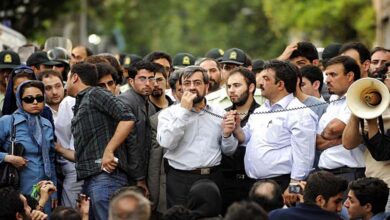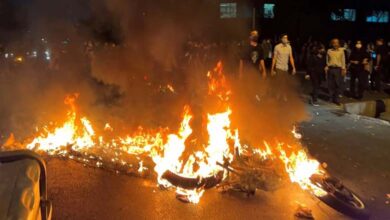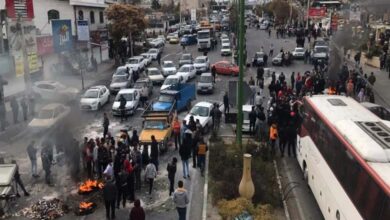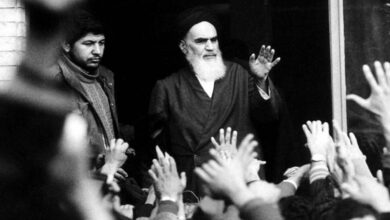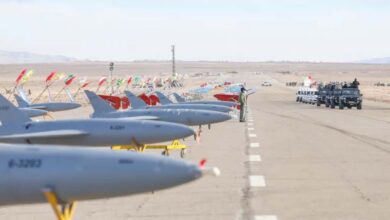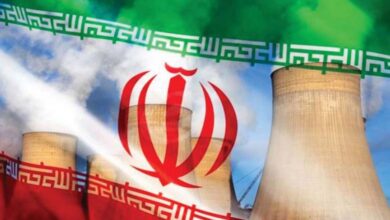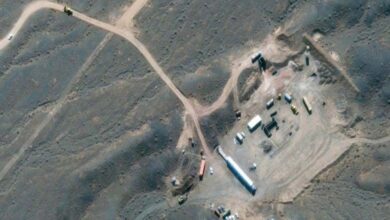“Iran’s Nuclear Program”: IAEA Condemnation and Tehran’s Response
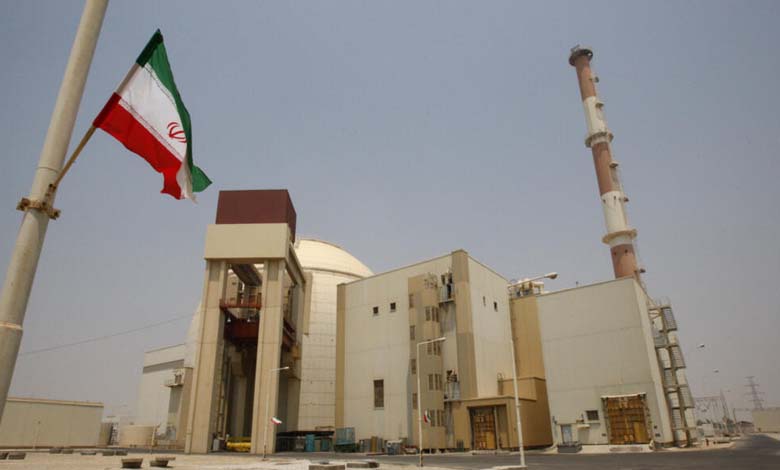
New developments in the Iranian nuclear file crisis are escalating tensions in the Middle East.
Following a decision by the International Atomic Energy Agency (IAEA) Board of Governors condemning Iran for expanding its nuclear activities and failing to cooperate with the agency, Tehran swiftly announced the activation of advanced centrifuges.
-
Iran’s Nuclear Program: What is the “Wisest” Path for the U.S. to Face It?
-
Associated Press: Iran Develops its Nuclear Program by Installing a Series of Centrifuges
The IAEA Board of Governors overwhelmingly approved a resolution proposed by the UK, France, Germany, and the US, condemning Iran’s nuclear expansion and lack of cooperation with the agency.
Nineteen of the 35 member states voted in favor of the resolution, 12 abstained, and only Russia, China, and Burkina Faso opposed it.
This resolution requests the IAEA director-general to present a comprehensive report on Iran’s nuclear activities and its lack of cooperation before the next Board of Governors meeting in March.
-
Iran Warns Atomic Energy Agency Against Issuing a Resolution Against Its Nuclear Program
-
Iran’s Nuclear Program Has Crossed ‘All Red Lines’, Says Israel PM
Washington stated that Tehran’s nuclear activities remain “deeply concerning” and that Iran’s cooperation with the agency is “far below expectations.”
European countries also declared that Iran’s “nuclear behavior” continues to pose a “threat to international security.”
The UK, France, and Germany issued a joint statement asserting, “The international community must remain steadfast in preventing Iran from developing nuclear weapons.”
-
Before the expiration of UN Security Council sanctions, Congress is discussing a new bill imposing sanctions against Iran’s nuclear program
-
Information’s about the Iran’s nuclear program
These nations dismissed an Iranian proposal to cap its uranium stockpile, describing the offer as insufficient and insincere. Diplomats stated that the move was conditional on the resolution’s withdrawal.
This marks the second resolution against Iran in six months.
Iranian Response
Iran immediately responded by announcing the activation of new advanced centrifuges at its nuclear facilities.
A joint statement from Iran’s Foreign Ministry and Atomic Energy Organization stated, “In response to this hostile resolution, advanced centrifuges of various types have been activated.” It described the resolution as “unreasonable.”
-
“Telegraph”: Iran May Feel That Building a Nuclear Bomb Is Its Only Option Now
-
What Are the Key Expected Scenarios for the Nuclear Deal After the Iranian Elections?
The statement added, “The details of Iran’s response were communicated to IAEA Director-General Rafael Grossi. This includes launching a set of advanced centrifuges of various models.”
It emphasized that these measures align with the “protection of national interests” and the “peaceful expansion of nuclear energy” in compliance with Iran’s rights and obligations.
The document also noted that technical and preventive cooperation with the IAEA will continue as before within the framework of safeguard agreements.
-
European Powers Pressure Iran to Halt Nuclear Violations
-
Iran’s Nuclear Calculations Become More Dangerous After Escalation with Israel
Before the vote, Iran had warned it would react immediately if the resolution were approved.
Grossi’s Visit
IAEA Director-General Rafael Grossi visited Iran in November, shortly after Donald Trump was re-elected as U.S. President.
During his visit, Grossi met with Iranian officials, including Mohammad Eslami, head of Iran’s Atomic Energy Organization, and Abbas Araghchi, Foreign Minister and chief negotiator of the 2015 nuclear agreement.
-
Joint British, French, and German statement on Iran’s approach to nuclear weapons… What was stated?
-
New catastrophe… Iran prepares to become a nuclear state
This agreement, officially known as the “Joint Comprehensive Plan of Action” (JCPOA), lifted sanctions on Iran in exchange for curbing its nuclear program. Trump withdrew from the deal in 2018, reinstating harsh economic sanctions, prompting Iran to gradually abandon most of its commitments.
Tensions with Israel
On Monday, Israeli Prime Minister Benjamin Netanyahu claimed that his country struck facilities linked to Iran’s nuclear program.
-
In exchange for sanctions relief, the US and Iran indicate nearing an agreement on the nuclear deal
-
Due to international pressure and a weak regime… Reasons for Iran’s reluctance to produce its first nuclear bomb
Netanyahu stated, “We hit a facility connected to Iran’s nuclear program and destroyed four S-300 batteries.”
These rising tensions have sparked fears of a direct conflict between Israel and Iran after years of indirect strikes across the region.


